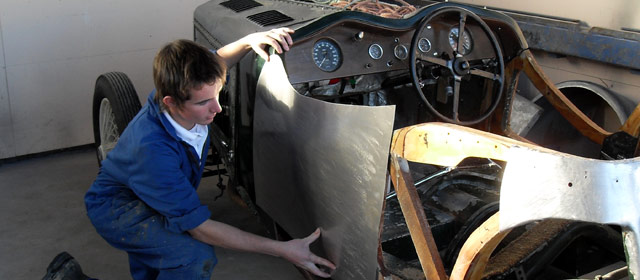Story summary
Workshops are small companies, usually employing fewer than 20 people, that manufacture goods. In 2008 more than 90% of New Zealand’s manufacturing businesses were workshops, making them very important to New Zealand’s economy.
Inventors such as Bill Hamilton, who designed the jet boat, often work in workshops.
First workshops
When European settlers came to New Zealand, many started small workshops to make the items people needed. The products most commonly made in workshops were:
- soft drinks (then called aerated water)
- milled grain
- bricks and tiles
- horse-drawn coaches
- furniture
- beer.
There were also workshops that made coal ranges, tools and mining equipment.
From coaches to cars
Coachbuilders made horse-drawn coaches, some especially designed for New Zealand conditions. When cars were introduced in the early 1900s many coachbuilders switched to car assembly. In the 2000s panel beating and automotive workshops are common.
Workshops in the 2000s
Some traditional workshop industries such as jewellery-making have re-emerged as artistic crafts. Some small companies export their products overseas.





